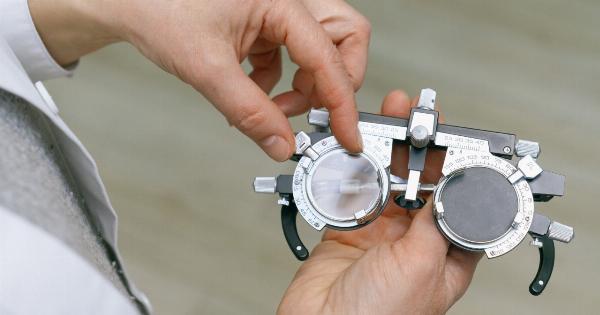Alzheimer’s disease is a devastating neurological disorder that affects millions of people worldwide. It is the most common cause of dementia and currently has no cure.
However, recent research suggests that a simple eye exam could potentially detect early signs of Alzheimer’s, providing a glimmer of hope for early intervention and treatment.
The Link Between the Eyes and the Brain
The eyes have long been considered the “windows to the soul,” but they may also offer a glimpse into the state of our brain health.
The retina, a layer of tissue at the back of the eye that plays a crucial role in vision, has a direct connection with the brain through the optic nerve. This connection makes the retina an excellent candidate for studying neurological conditions such as Alzheimer’s.
How Alzheimer’s Affects the Retina
Alzheimer’s disease leads to the accumulation of certain proteins in the brain, including beta-amyloid plaques and tau tangles.
These protein deposits disrupt normal brain function, causing memory loss, cognitive decline, and other hallmark symptoms of the disease.
Recent studies have found that these same protein deposits also appear in the retina, indicating a potential parallel between the eye and the brain.
Researchers have discovered that the retina undergoes significant changes in Alzheimer’s patients, including thinning of specific layers, shrinkage of blood vessels, and increased levels of the proteins associated with the disease.
The Potential of Retinal Biomarkers
Using advanced imaging techniques, such as optical coherence tomography (OCT), scientists can visualize and measure these structural changes in the retina.
This non-invasive and relatively inexpensive eye exam could potentially serve as a biomarker for Alzheimer’s disease, providing valuable insights into the progression of the disease and its effects on the brain.
Researchers have found a strong correlation between retinal thinning and cognitive decline in Alzheimer’s patients.
By tracking changes in the retina over time, doctors may be able to identify individuals at higher risk for the disease or detect its presence at an early stage when intervention strategies may be more effective.
Promising Studies and Findings
Several studies have shown promising results regarding the link between eye exams and Alzheimer’s detection.
For example, a study published in the journal Ophthalmology reported that amyloid plaques detected in the retinas of living Alzheimer’s patients correlated with the amount of plaques present in their brains. Another study published in the journal JAMA Ophthalmology found that changes in the retina, such as thinning and decreased blood vessel density, were associated with early stages of cognitive impairment.
Furthermore, a study conducted at the University of California, San Francisco, demonstrated that OCT scans of the retina could differentiate between healthy individuals and those diagnosed with Alzheimer’s disease with an astounding accuracy of 90%. These findings highlight the potential of eye exams as a diagnostic tool for Alzheimer’s.
The Path to Early Intervention
Early detection of Alzheimer’s disease is crucial for several reasons. Firstly, it allows patients and their families to plan for the future and make necessary lifestyle modifications.
Secondly, it provides an opportunity for enrollment in clinical trials and research studies aimed at finding effective treatments for the disease. Lastly, early intervention strategies, such as lifestyle changes and early drug treatments, may help slow down the progression of the disease and alleviate some of its symptoms.
The use of eye exams as a screening tool for Alzheimer’s has the potential to revolutionize the way we diagnose and treat the disease.
Regular eye exams could become a routine part of healthcare, allowing for early detection and intervention, ultimately improving patient outcomes and quality of life.
Challenges and Future Outlook
While the prospect of using eye exams to detect Alzheimer’s is promising, there are still several challenges that need to be overcome.
One limitation is the lack of standardized protocols and techniques for retinal imaging across different medical facilities. Standardization is crucial for ensuring accurate and reproducible results.
Additionally, large-scale clinical trials are needed to validate the effectiveness of eye exams as a reliable diagnostic tool for Alzheimer’s.
These trials would involve monitoring a large number of individuals over an extended period to assess the predictive value of retinal biomarkers.
Despite these challenges, the development of retinal biomarkers for Alzheimer’s detection holds significant potential.
It offers a non-invasive, widely accessible, and cost-effective approach that could aid in early intervention and improve the lives of millions of people affected by this devastating disease.
Conclusion
The possibility of detecting early signs of Alzheimer’s disease through a simple eye exam brings hope to individuals at risk and their families.
The retina’s connection to the brain makes it a promising avenue for investigating neurological disorders. While further research and standardization are necessary, the potential of eye exams as a diagnostic tool for Alzheimer’s marks an important step forward in the fight against this debilitating condition.




























